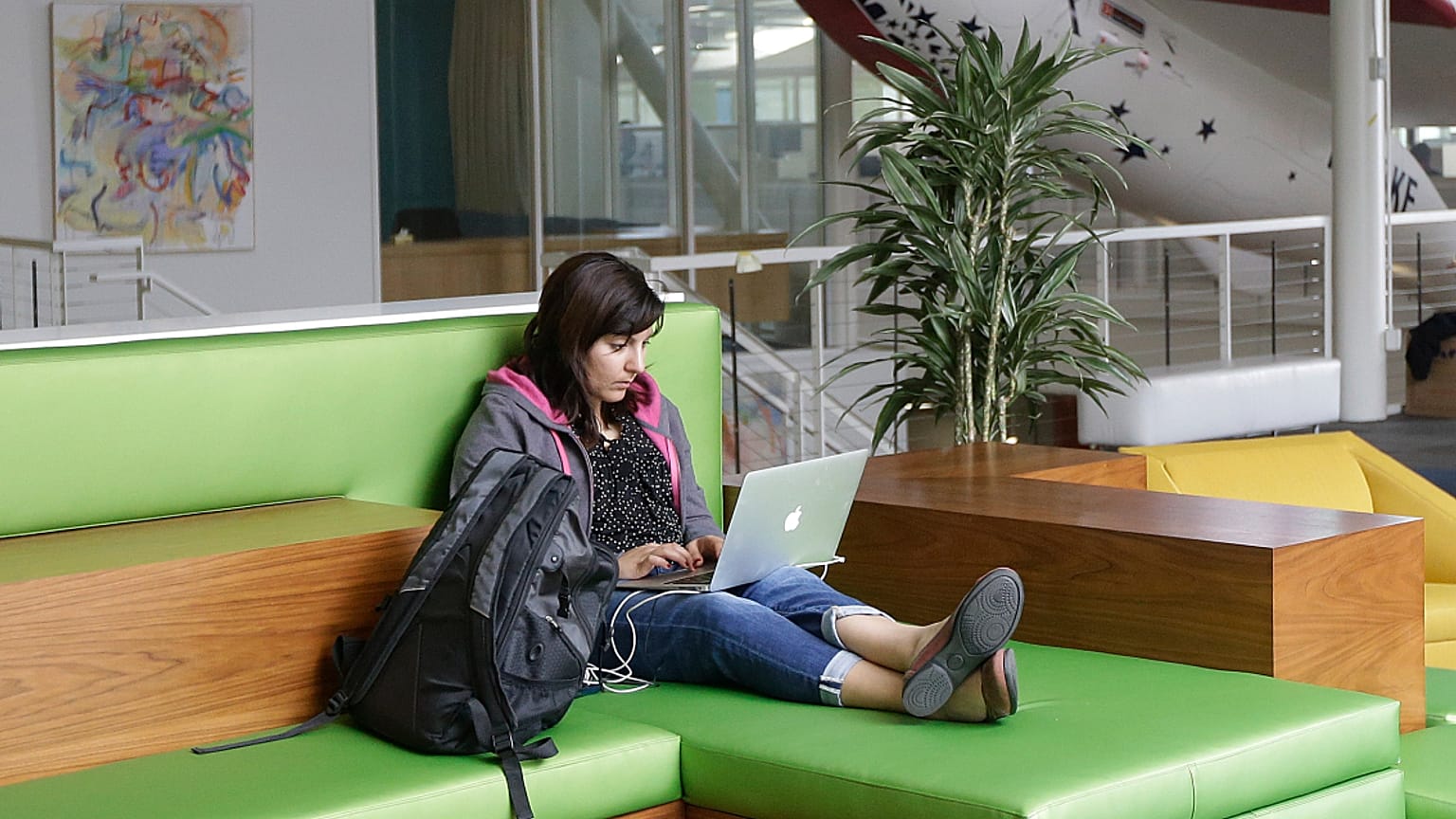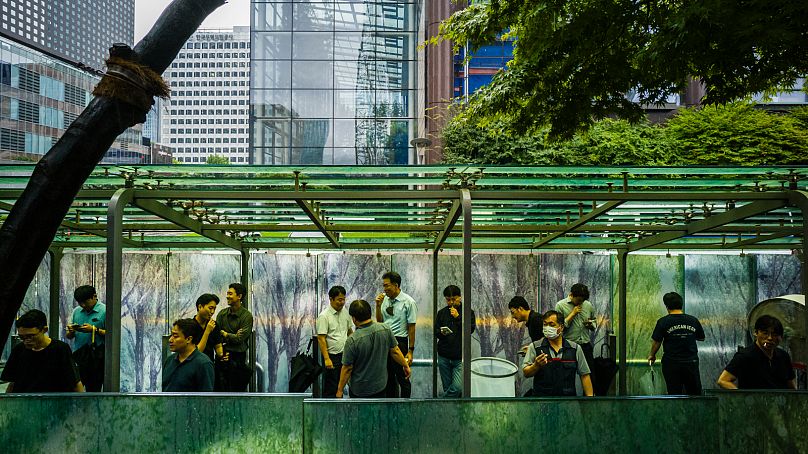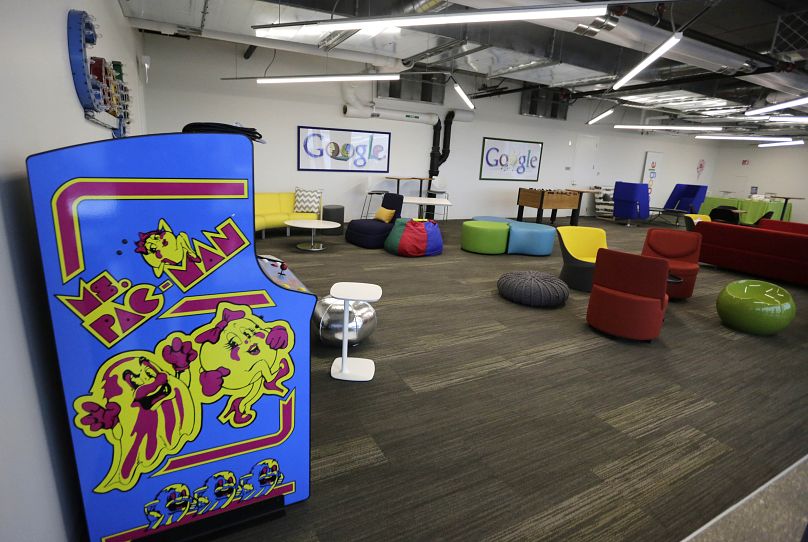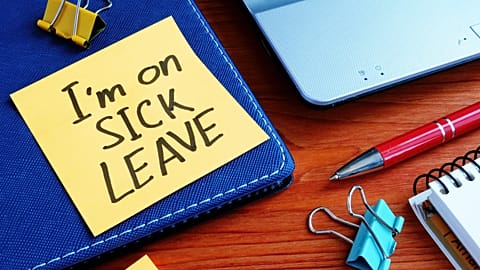Researchers have looked at the moments of the day when employees are not working in the office. Does it mean our modern labour system isn’t as productive as we think?
From the time you sign onto your computer at work to a final coffee break before the end of the day, there are plenty of moments when employees aren’t technically working.
This is the subject of research by Sophie Rauch at the ESCP Business School in Paris who says she was inspired to delve into it in part by the TV series “The Office”.
“What struck me about the series was that I found that it described everyday work very well in a quite satirical and funny way, but at the same time very accurately. And actually, in the series, what is striking is that they spend very little time working,” she told Euronews Next.
She’s come up with a list of 38 activities that people do at work that constitute “non-work” - any actions that are not directly useful to the company or work.
It’s similar to Swedish sociologist Roland Paulsen’s concept of “empty labour,” which is the private activities that people engage in at work and the subject of his 2014 book on the topic.
So, what do people do when they aren’t working?
Rauch had her research participants record logbooks of their work, including during the early days of the COVID-19 pandemic. The subjects were, for the most part, office workers in Paris.
Her list of “non-work” activities includes natural coffee breaks during the day, rewards for completing a task, and even gossiping with colleagues after a meeting.
She says many of the participants were surprised by how much “non-work” they were engaging in, but that despite the taboo around the topic, it can just be the rituals that mark your workday or even activities that tangentially help you in your workplace.
“There is non-work which is very useful at work. For example, when we are on a cigarette break with colleagues or when we talk about big topics concerning office life, we produce meaning about our organisation, we build relationships, and it can prove useful,” she said.
“We can even have access to information which is then very useful at work,” she added.
While online procrastination is one of the activities she studied and one aspect of empty labour, it’s not necessarily the dominant one.
“I find that in procrastination, we mean a deliberate act, the fact of procrastinating and dragging one's feet. But sometimes, it happens whether the participants realise or not. They find themselves caught up in something else,” Rauch said.
“For me, it is also a natural manifestation of the ebb and flow of concentration that we can have during a working day and so it is not necessarily intentional”.
A 2018 survey from the online learning platform Udemy found that the top workplace distractions were chatty coworkers, office noises, feeling overwhelmed by work, and social media.
Cyberloafing, or using the Internet to waste time instead of work, remains however a growing organisational concern for today’s office workers, with smartphones a large distraction for younger generations.
More than a third of millennials and Generation Z workers said they spend two hours or more checking their phones during the day, the survey found.
Why do people spend time not working?
One aspect of this non-work - which can take up hours of the day - includes times when people don’t have enough work to do or the tasks aren’t interesting enough.
Sometimes employees are also given too much time to carry out a certain task.
Roland Paulsen, an associate professor in organisational studies at Lund University in Sweden, focussed his 2010 research on people in extreme environments where sometimes half of their day consists of empty labour.
“It can be very boring if you spend a lot of time not working while at work. So the question is what do you do with all that time?” he told Euronews Next.
“Bore-out” is a concept that was developed by management consultants in Switzerland in their 2007 book Diagnose Boreout. It is when people find a lack of meaning and motivation in their work.
“You go into a slow mode, it’s almost kind of apathy. In order to avoid that, I think the Internet is instrumental because what the Internet offers is this constant stimulation,” he said.
Some of the examples he gives of empty labour include forms of cyberloafing such as watching YouTube or surfing the web.
This can also be related to the organisation or to managers who are out of touch with the work that their employees are doing and the amount of time that it should take.
“Many times, managers come from different fields and have different backgrounds. They can be business administrators and yet they are supposed to manage engineers so they will have a lot less grasp of what these engineers are doing. That’s something we see in almost every organisation,” Paulsen said.
But revealing that time is being wasted in the organisation is also not in managers’ interest, he added, so they can put an effort into the appearance of staying busy.
‘Unavoidable to some extent’
Rauch says that it’s not possible to work physically and mentally all the time.
“People, naturally, are going to take breaks, whether they are tolerated or not. That says absolutely nothing about their ability to be good professionals and their ability to comply with the demands placed on them,” she said, adding that sometimes they are forced into non-work by themselves or by their organisation.
Legally, in France for instance, employees have the right to have 20 minutes of break for every six hours of work.
Paulsen agrees that empty labour is “unavoidable to some extent” and points out that in some industries it can even be encouraged, pointing to the “playground” offices of Big Tech companies such as Google and Apple.
“That’s something that might signal privilege but there’s also some thought behind it mainly that while you’re not working, in some fields that might be when you get your best ideas,” he said.
Empty labour is certainly not a new phenomenon but it has changed in the modern era with the idea of time management where employees show up at a certain place at a certain time.
But it does call into question how societies measure productivity.
“We have a notion I think in most Western nations that capitalism forces companies to be as productive as possible and if you’re not maximally productive, you will somehow lose your place in the market,” he told Euronews Next.
“But what the phenomenon of empty labour reveals is that capitalism or wage labour more precisely can have the reverse effects as well because you’re afraid of losing your job, the importance of pretending or appearing becomes even more important than the actual substance of your work”.




















